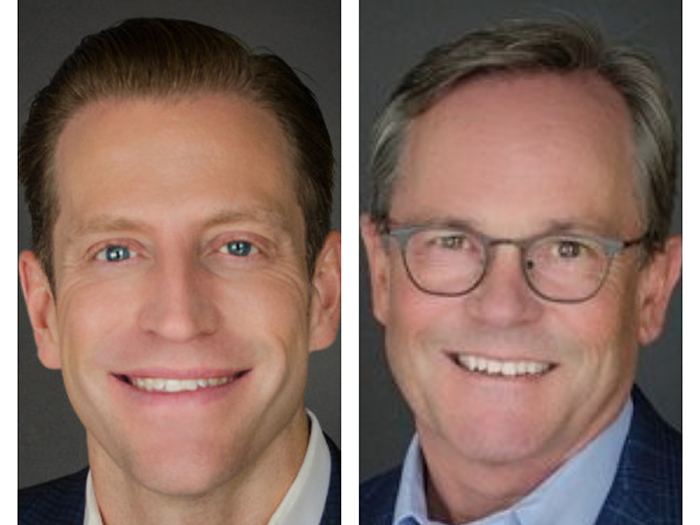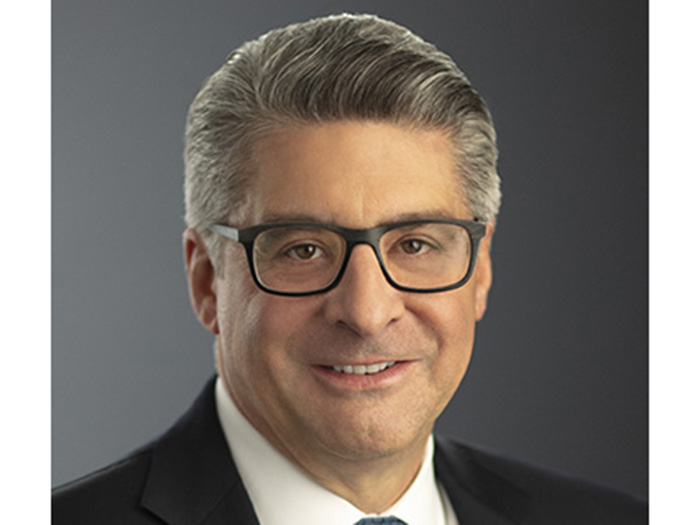RISKWORLD™ 2025 Coverage: Navigators’ Jenn Barbee

At RISKWORLD™ in Chicago, Dan Reynolds, the editor in chief of Risk & Insurance, caught up with Jenn Barbee, head of wholesale financial lines for Navigators, a brand of The Hartford. She presented at the conference on the risks that social media use and online bullying pose for organizations. What follows is a transcript of that discussion, edited for length and clarity.
Risk & Insurance: I am with Jenn Barbee here at RISKWORLD™ in Chicago and we are going to talk about employment practices issues. Specifically, we are on the topic of digital online bullying. Jenn, if a manager becomes aware of online harassment or bullying of an employee, what are some good first steps to take?
Jenn Barbee: It is important that the company follows their policies and procedures. I am going with an assumption that the company has an employee handbook. And in that employee handbook, they have outlined, when there are concerns or allegations of workplace bullying, that there are escalation channels. So it is important that the employer first and foremost is empathetic in their response, that they listen, that they are not coming at this from a place of defensiveness, that they are really just listening to the employee and they’re approaching it from an empathetic perspective.
And then they follow those guidelines, which generally is investigating the matter. And that means reinforcing to employees what is in the employee handbook around social media use and interacting with employees. And also reinforcing what is considered discriminating or harassing behavior in the workplace and supporting the culture against that.
R&I: When an employer is aware of something and does not take appropriate action, how severe can the consequences get?
JB: We hear a lot about nuclear verdicts in this day and age and some of that is driven by the mental health concerns coming out of COVID. We are also a more empathetic society. While these types of issues may not make it to nuclear verdict status, it does mean that these allegations and issues result in consequences that tend to be higher from a settlement and resolution perspective.
R&I: When there is a suspected incident, maybe there’s somebody who said something, at what point do you notify your carrier that there may be an issue.
JB: I’ll speak for Navigators and I will say that we prefer for an organization to report that notice of circumstance just as soon as they are made aware of it. There are tools that your employment practices insurance carrier can offer to you that can help manage this event right out of the gate. If you do that it may not materialize into as big of an issue could have if you did not engage with someone, with your insurance carrier as a partner out of the gate.
R&I: It is just an idea and I am not sure who would implement it, but is the idea of just saying all employees off social media or what is that even enforceable?
JB: I would say it’s virtually impossible, in this day and age with personal devices, folks working outside of a physical office location with that 24-7 access. I think giving examples of what that conduct should look like, what you expect of your employees, is the best approach.
R&I: My last question had to do with EPLI coverage. What are your impressions of the availability, the pricing, the capacity of the coverage these days?
JB: There’s definitely sufficient capacity where most nonprofits and private companies could expect to purchase this coverage. And, generally, you can purchase the coverage on a package basis, a standalone, or even endorsements. For smaller employers, you can generally purchase it as an endorsement to the BOP policy.
R&I: Thanks for your time today Jenn. Anything about this topic that I did not ask you about that you feel is important that we should get across to our readers?
JB: In a presentation that I did today, the one thing that I said is that it is important to know that where we are today with society there was always the perception that sexual harassment and bullying occurred only in person; that it needed to be something physical. We have progressed as a society with social media, with digital platforms, with people working remotely, that it does mean more. It can simply be words in a text. It can be images, it can be comments, it can be suggestive material. So it is important for employers to know that too and ensure that is addressed in their employee handbook. &










